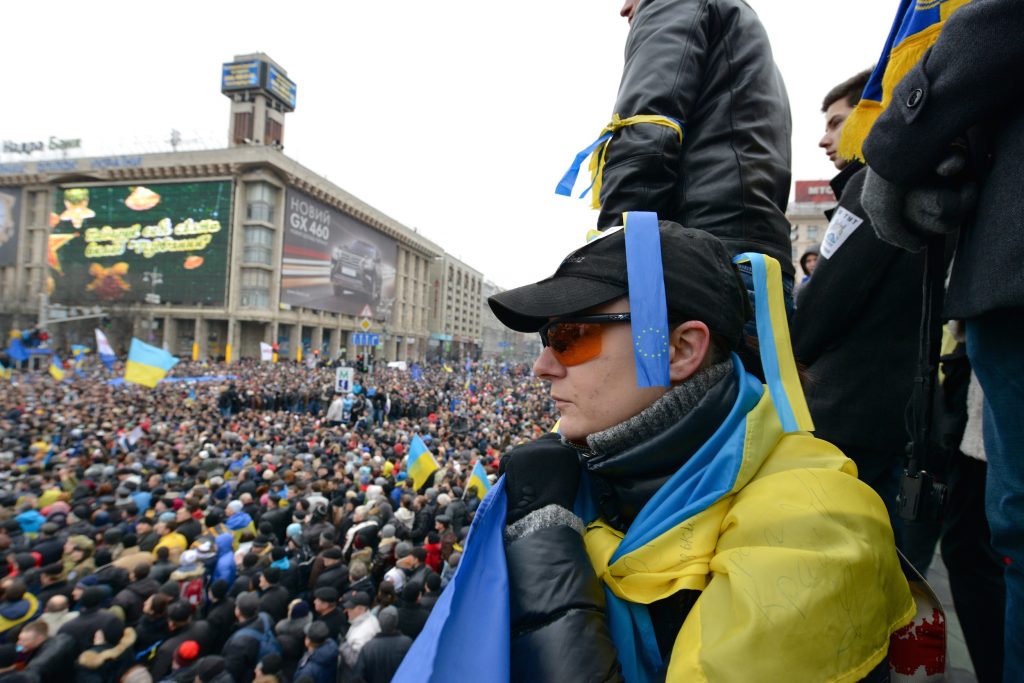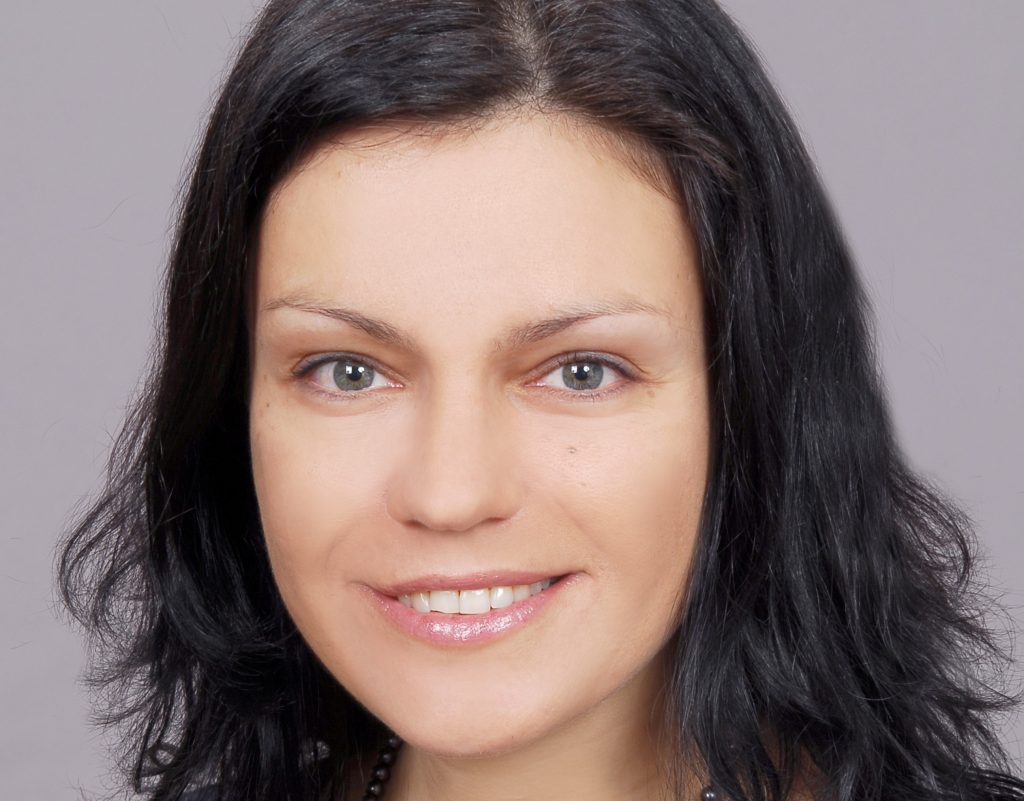How Western Populism Weakens Democracy in Ukraine
Populism in Europe, and in the West generally, plays into the hands of anti-democratic forces in Ukraine – and supports Russia’s destabilizing influence. Europe’s rising populist surge threatens Ukraine’s democratic future.
During the Euromaidan protests in 2013/2014 and their aftermath, when the anti-Yanukovych opposition came to power, some European media denounced what they described as right-wing extremists or even fascists in Ukraine. This perspective was shaped by official Russian propaganda, and neglected the whole point of what the Euromaidan was about.
The reality is that in the course of both presidential and parliamentary elections in Ukraine in 2014, right-wing political forces received virtually no support. Moreover, it was thanks to pro-European aspirations and the determination of millions of Ukrainians that the country received a chance to overhaul the old post-Soviet system of governance and make a breakthrough towards becoming a truly European country.
Today, a struggle is unfolding between old elites and structures intent on preserving the status quo on the one hand, and new, reform-minded parts of society on the other. The latter promote a new social contract, fighting for a democratic, prosperous and stable country – the neighbor the European Union has always aspired to have – in the context of Russian military aggression causing lost or ruined lives on a daily basis.
This forward-looking part of Ukrainian society does not just need support from the democratic West; it needs a strong, coherent Europe and a West united by liberal democratic values.
Ukrainian democracy remains “defective”
Since the Euromaidan protests, Ukraine has improved its quality of its democracy, as recorded by the 2016 edition of the Bertelsmann Stiftung’s Transformation Index (BTI). But it still remains at a level described by the index as “defective democracy”, while the rule of law, stability of democratic institutions and political and social integration remain lacking. The BTI analyzes:
Ukraine initiated what may be the best chance of democratization in its history – though certainly one with no guarantee of success. To date, although possibilities for political participation have been hugely expanded, the implementation of reforms has been persistently accompanied by setbacks – not to mention an erosion of state authority. … This is thus a mixed picture, and yet it offers some indications that the reform process will not simply vanish quietly from the scene this time. Ukraine’s civil society is much more active and is taking a more substantial part in decision-making and legislative processes than was the case after the Orange Revolution.
Together with international partners, democratic forces have succeeded in pushing for many important reforms. However, these achievements are not necessarily sustainable, and could fall victim to anti-reform, undemocratic domestic forces.
The rise of populism in the West, demonstrated by the growing popularity of right-wing political parties, Brexit, and the election of Donald Trump, might do just that. Thus far, Ukraine has been affected by it in several ways.
European populists exacerbate Russia’s destabilizing influence
First, there were the representatives of numerous populist parties in Europe who acted as observers during the so-called referendum in Crimea in March 2014, thereby indirectly legitimizing Russia’s annexation of the peninsula. This included members of the Belgian Parti Communautaire National-Européen and the Vlaams Belang, the Freedom Party of Austria and the Alliance for the Future of Austria, the French Front National, Italy’s Forza Italia, the Bulgarian Ataka and Jobbik from Hungary.
Representatives of these political forces have not shied away from maintaining friendly relations with the Russian political establishment and justifying Moscow’s aggressive policy towards neighboring countries. One of the most prominent examples is the Front National candidate for the French upcoming presidential election, Marine Le Pen, who has consistently claimed that the Russian annexation of Crimea was legitimate and has insisted that sanctions against Russia have to be lifted.
Second, in June 2016 the Netherlands voted against the Association Agreement between the European Union and Ukraine in a referendum initiated by the populist political initiative GeenPeil. While its members admitted they did not really care about Ukraine but were opposed to the political system of the EU, the outcome delayed the ratification and entry into force of the Association Agreement, a symbol of European Ukraine that brought millions to the streets in Kiev in November 2013.
Finally, the decision to postpone the granting of visa-free travel to Schengen countries for Ukrainians can be indirectly traced back to the rise of populism too. In June 2016, in response to campaigns by anti-immigration parties in Europe, EU member states decided to introduce a suspension mechanism for countries enjoying visa-free travel to the EU, and made its introduction for Ukraine, Georgia and some other countries dependent on the adoption of this mechanism. While this conditionality stimulated important reforms in Ukraine, particularly in the fight against corruption, the postponement of the final political decision raised disappointment among many Ukrainians.
All these events have direct implications for the struggle between pro-European forces in Ukraine and those seeking to preserve the status quo, or even advocate a form of isolationism.
Ukrainian reformers are weakened
On one hand, it makes it more difficult for pro-European forces in Ukraine to advocate reforms. The adoption of numerous European standards, spanning from economic, judicial, and financial reforms to various technical and consumer standards, committed to by Ukrainian authorities, is strongly opposed by those who fear greater transparency and competition and have an interest in maintaining the oligopoly currently in place. Opponents of the reforms instrumentalize the hardships experienced by many as a result of the country’s difficult economic situation and refer to Europe as having lost interest in its Eastern neighbor.
Moreover, many populist parties in Europe are supportive of the current regime in Russia, and therefore blind to its violations of the territorial integrity and sovereignty of countries in Eastern Europe. In this context, there is a growing risk of both the United States and the EU lifting sanctions against Russia, which have been a key aspect of broader Western support to Ukraine in the face of the Russian-led hybrid war.
Armenia, which was ready to sign the Association Agreement with the EU, succumbed to Russian pressure in 2013. More recently, Moldova – the poster child of the Eastern Partnership region – saw the victory of a pro-Russian candidate in presidential elections. Losing the battle for Ukraine might have wider negative implications for the region and Europe in general.
In broader terms, the rise of populism undermines the unity of the EU and its agency with regard to Eastern Europe. Donald Trump’s electoral victory and the subsequent weakening of the policy of external democracy promotion on the part of the U.S. complicate the situation. It leaves the EU alone in performing this task. As a result, pro-European Ukrainians not only find it more difficult to refer to the EU as a normative power, but actually realize that they cannot rely on the EU in the way they did before.
Ukrainians have paid a high price in lost lives and displacements for a unique chance to become a truly democratic and prosperous European country – a chance which populist developments in Europe now undermine.
Iryna Solonenko is a researcher at the European University Viadrina, Frankfurt/Oder and Associate Fellow at the Robert Bosch Center for Central and Eastern Europe, Russia, and Central Asia of the German Council on Foreign Relations (DGAP). She is one of 246 country experts who worked on the latest edition of the Bertelsmann Stiftung’s Transformation Index, BTI 2016. She also writes for the Bertelsmann Stiftung’s SGI News


Defective democracy in Ukraine